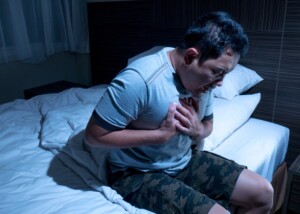Don’t count yourself out from having sleep apnea just because you don’t have daytime symptoms and are lean, buff and young.
Sleep apnea is one of those conditions for which millions of people could be walking around totally clueless that they have it. Including women.
Classic Symptoms of Sleep Apnea
“Snoring (especially loud enough to disturb others), unrestful sleep, morning headaches, daytime sleepiness (especially if you fall asleep inappropriately such as while driving, talking with others, at work) and of course, fatigue,” says Susan L. Besser, MD, with Mercy Medical Center, Baltimore; Diplomate, American Board of Obesity Medicine and board certified by the American Board of Family Medicine.
The person with untreated sleep apnea may be prone to napping a lot but never feeling recharged.
He or she may avoid extended driving trips because they know they’ll become drowsy behind the wheel.
The morning headaches disappear soon after getting out of bed.
You may not have the more overt signs of sleep apnea, such as snoring or excess daytime grogginess.
However, there are nighttime signs that are suspect for untreated sleep apnea.
• Suddenly awakening feeling as though your airway was cut off
• Partner describes snoring as a snorting sound
• Partner describes your breathing as labored or gasping
• Partner says you stop breathing for extended periods
• Partner says your breathing is erratic, shallow and/or comes in rapid waves between long pauses
• Repeated trips to the toilet overnight
If any of the above bullet points applies to you, you should discuss these with your physician and consider the possibility of having a sleep study — which can determine if you have sleep apnea.
In addition to the above points, do any of the following apply to you?
• Scalloped tongue*
• Can’t see throat due to high-arched palate
• Crowded teeth
• Wisdom teeth removal
• Small appearing jaw
• Receding chin
*Scalloped tongue. Check the sides of your tongue. Do you see indentations from your teeth? That indicates a small jaw.
Your dentist can discuss with you the likelihood of sleep apnea if you have any of the oral features listed above.
Dentists view the interior of mouths all day long and can give you very insightful feedback.






































